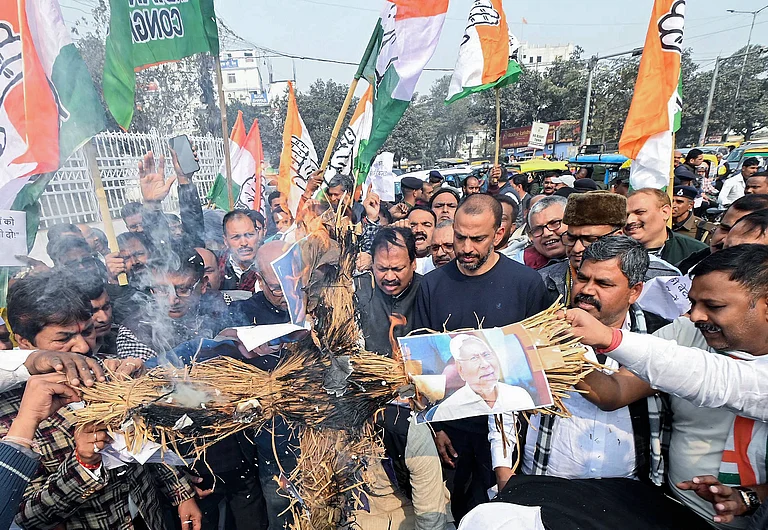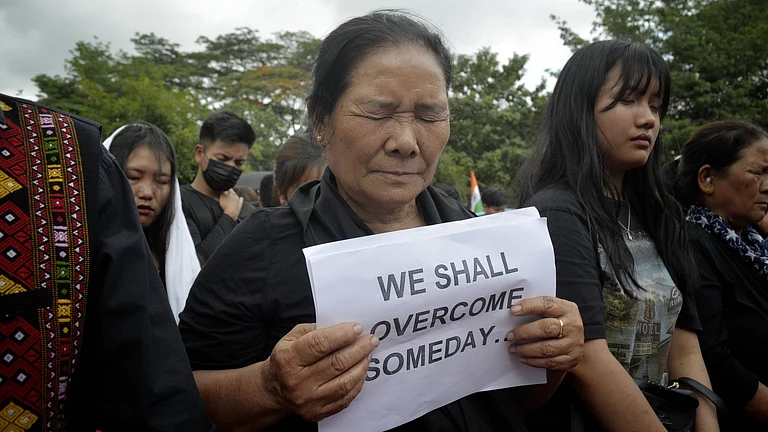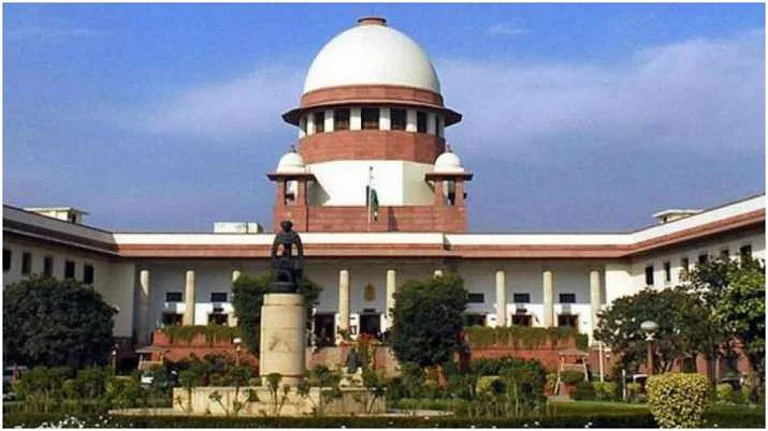“The endless cycle of idea and action, endless invention, endless experiment.”
These are the words of T.S. Eliot that the Supreme Court quoted while striking down Section 497 of the Indian Penal Code, decriminalising adultery. For a country like India, where knocking on the court’s door has always proved taxing, reforms are the need of the hour. The rules set by our colonisers need to be amended and more progressive laws need to be implemented. But it needs cautious handling so that we prevent reinforcing the loopholes in the existing laws. Home Minister Amit Shah proposed a stack of three new laws on the final day of the monsoon session of Parliament aimed at ‘decolonising’ India’s criminal laws – Bharatiya Nyaya Sanhita (BNS), Bharatiya Nagarik Suraksha Sanhita (BNSS) and Bharatiya Sakshya (BS). In BNS 2023, which seeks to repeal the IPC of 1860, the government gives 'special attention' to protection of women (and children) – a move in line with their ‘Nari Shakti’ tagline. However, it still preserves the gendered language of the colonial relic, as well as the social dominance of men that was preferred a century and a half ago when the IPC was written.
Indian laws, like most other things, have had a patriarchal approach, even though there have been several important amendments to them. The new bills aim to be gender neutral but the proposed Bharatiya Nyaya Sanhita, which has carefully brought a chapter on ‘Offences Against Women and Children’, gives a pass to protection from the same offences against men and transgender people. Even for women and children, BNS 2023 has very few additions that make the laws stricter.
Old Book, New Cover
“In terms of crime against women and whether BNS addresses the issue with far more sensitivity and progressive idea, the answer is no. There is absolutely no change between the old law and the new one. The cover is new but the content remains the same,” says Advocate Shobha Gupta, who is also the lawyer for Bilkis Bano.
“I heard people say that the section pertaining to women’s safety has been put at the top of the code to bring it to attention. But how does it make a difference just by changing the serial number? The sections are verbatim lifted from the current penal code and pasted to the proposed one. So are we saying that by bringing it forward, the impact will be more? Does it make the law any stricter? It seems like a ridiculous explanation,” she says.
One of the positive outlooks of the BNS is that the sections about sexual offences and women’s safety have been brought under one basket, as opposed to the scattered sections and chapters of the present criminal laws. There are other small changes like in Section 64 of the new bill, the punishment for rape is at least 10 years, as opposed to seven years in IPC. However, can that alone really be called an overhaul?
Women’s Safety Vs Women’s Rights
One cannot help but notice how the chapter on “offences against women” reinstates that men act, women are acted upon. The BNS bill intends to protect women against men who don’t just assault but also make advances, ask for sexual favours, stalk, deceit women on false pretence of marriage etc. However, the sexual agency of a woman is almost entirely missing. It reimposes the idea of preserving a woman’s honour rather than treating her as an equal to men – women are always the victims, and men are always the ones who victimise.
Advocate Gupta notes that the proposed penal code is reinforcing the idea of “women being a commodity, an object of consumption”.
Giving the example of domestic violence, she says, “It is regressive when you don’t address something that was essential, for which there has been so much hue and cry. We celebrate the Domestic Violence Act as if it was a great work done by the legislators. But does it punish anyone? No. In that case, we go back to IPC and one has to go through the rigmarole of a trial and we know that is a menace in its present form.”
In terms of protection of women’s rights, BNS fails to bring anything new to the table. And one of the biggest markers of that is the missing chapters on marital crimes. The proposed law does not make punishment against domestic violence stricter or the trials faster. “If the sufferers are crying loud and clear that it has to be addressed that they don't feel safe within their own four walls, their home, which should be the safest place for anyone, why shouldn’t the bedroom of a woman be her safe space,” Advocate Gupta asks.
Indian laws to date do not consider marital rape as rape due to various social, cultural and legal concerns that have been contested for in courts. Criminalising marital rape was rejected by Justice C. Hari Shanka, who was part of the Delhi High Court bench that delivered a split verdict on the same last year. But even in the new proposal, marital rape finds no mention. Apart from a vague mention of the husband or his relative ‘subjecting a woman to cruelty’, the concept of consent in marriage goes amiss. If a new criminal code is being proposed, is it merely the fear of its misuse that is keeping them from criminalising marital rape?
Advocate Shobha Gupta says, “Every law is amenable to misuse, that is not an excuse. Divorce, maintenance, domestic violence – all of these laws are being misused too and courts handle that. But it is important to at least have the provision so that those who face it on a daily basis, who have to succumb to somebody’s dictate, command, wish or force, are finally heard.”
“Anything done by someone’s command or dictate or force can certainly not be a pleasure association,” she adds.
No Protection For Men Against Sexual Violence
More than women, it is men – especially queer men – who are the most vulnerable if BNS is passed in its present form. The new stack of laws perceives criminal justice system from a gendered view. Amid big talks of women’s safety and ‘Nari Shakti’, the Centre fails to have any provision that protects men and transgender people against sexual offences. A carefully crafted proposal, BNS completely omits the provisions of “unnatural sex” under Section 377 which was read down by the Supreme Court in 2018 as a violation of the right to privacy.
While the top court decriminalised gay sex between consenting adults, it still let “unnatural offences” be part of the IPC. Moreover, under IPC Section 375 which deals with rape, the listed notions of consent, if violated, constitute the offence of rape by a man (our IPC upholds the notion that women cannot be perpetrators of rape).
However, as per BNS 2023, the clause of sexual offences, listed in Chapter V, is limited to ‘offences against woman and children’. Therefore, “rape” under Section 63 of the bill is gendered – it is committed by men and only against women or children, not any other way around. Then what about the legal recourse for non-minor men and transgender people who are forced into sexual acts? For the current regime, according to the proposed law, such a thing does not exist.
In case the bill is passed in its present form, the only way to course correct would be by way of filing petitions, challenging in courts and seeking amendments, i.e. fighting the long fight once again.
The Road Ahead
With changing times, laws must be changed. But without the sensitivity of language of equality, the new criminal code needs a deeper analysis, a more constructive and progressive approach before its implementation. There have been attempts in the past too, to reform the Indian criminal laws. The Malimath Committee report of 2002 had 158 recommendations for amending the law as it felt the existing system “weighed in favour of the accused and did not adequately focus on justice to the victims of crime”.
“Every now and then, there are voices that say it has to be amended. But the proposed law needs to be given a relook – either tell us to live with the same one and say we are helpless, cannot change the law; or if you propose to change it, give it a reason to rejoice about. It has to be something which shows an advancement,” Advocate Gupta notes.


























